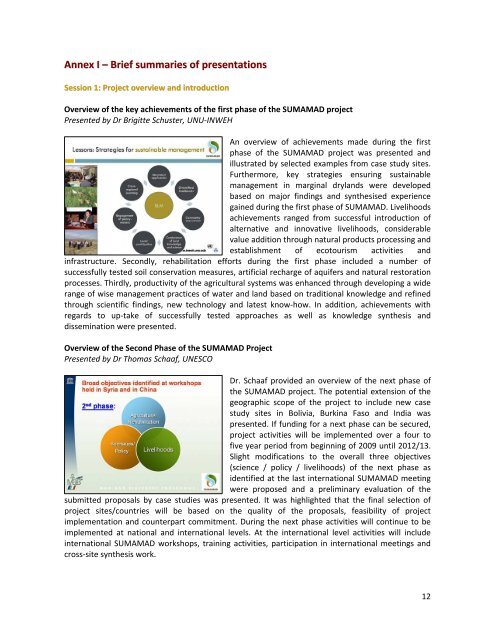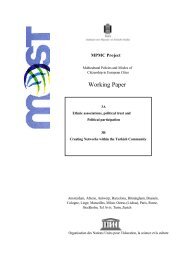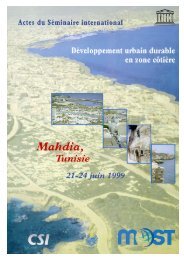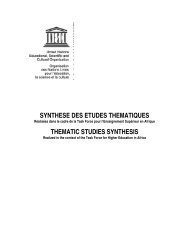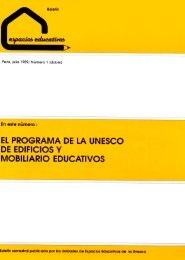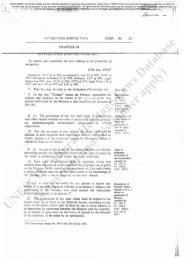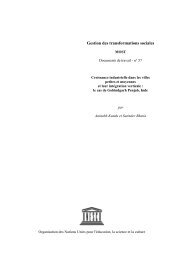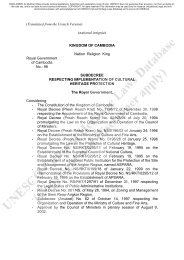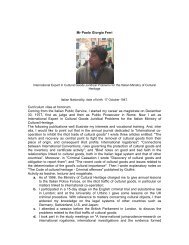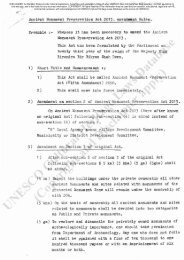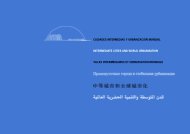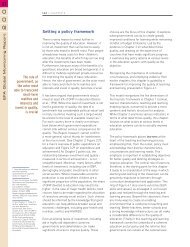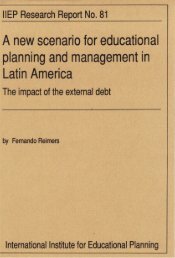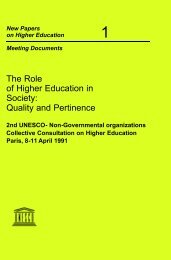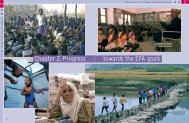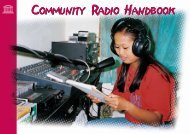Planning Workshop –Sustainable Management of Marginal - Unesco
Planning Workshop –Sustainable Management of Marginal - Unesco
Planning Workshop –Sustainable Management of Marginal - Unesco
Create successful ePaper yourself
Turn your PDF publications into a flip-book with our unique Google optimized e-Paper software.
Annex I – Brief summaries <strong>of</strong> presentations<br />
Session 1: Project overview and introduction<br />
Overview <strong>of</strong> the key achievements <strong>of</strong> the first phase <strong>of</strong> the SUMAMAD project<br />
Presented by Dr Brigitte Schuster, UNU‐INWEH<br />
An overview <strong>of</strong> achievements made during the first<br />
phase <strong>of</strong> the SUMAMAD project was presented and<br />
illustrated by selected examples from case study sites.<br />
Furthermore, key strategies ensuring sustainable<br />
management in marginal drylands were developed<br />
based on major findings and synthesised experience<br />
gained during the first phase <strong>of</strong> SUMAMAD. Livelihoods<br />
achievements ranged from successful introduction <strong>of</strong><br />
alternative and innovative livelihoods, considerable<br />
value addition through natural products processing and<br />
establishment <strong>of</strong> ecotourism activities and<br />
infrastructure. Secondly, rehabilitation efforts during the first phase included a number <strong>of</strong><br />
successfully tested soil conservation measures, artificial recharge <strong>of</strong> aquifers and natural restoration<br />
processes. Thirdly, productivity <strong>of</strong> the agricultural systems was enhanced through developing a wide<br />
range <strong>of</strong> wise management practices <strong>of</strong> water and land based on traditional knowledge and refined<br />
through scientific findings, new technology and latest know‐how. In addition, achievements with<br />
regards to up‐take <strong>of</strong> successfully tested approaches as well as knowledge synthesis and<br />
dissemination were presented.<br />
Overview <strong>of</strong> the Second Phase <strong>of</strong> the SUMAMAD Project<br />
Presented by Dr Thomas Schaaf, UNESCO<br />
Dr. Schaaf provided an overview <strong>of</strong> the next phase <strong>of</strong><br />
the SUMAMAD project. The potential extension <strong>of</strong> the<br />
geographic scope <strong>of</strong> the project to include new case<br />
study sites in Bolivia, Burkina Faso and India was<br />
presented. If funding for a next phase can be secured,<br />
project activities will be implemented over a four to<br />
five year period from beginning <strong>of</strong> 2009 until 2012/13.<br />
Slight modifications to the overall three objectives<br />
(science / policy / livelihoods) <strong>of</strong> the next phase as<br />
identified at the last international SUMAMAD meeting<br />
were proposed and a preliminary evaluation <strong>of</strong> the<br />
submitted proposals by case studies was presented. It was highlighted that the final selection <strong>of</strong><br />
project sites/countries will be based on the quality <strong>of</strong> the proposals, feasibility <strong>of</strong> project<br />
implementation and counterpart commitment. During the next phase activities will continue to be<br />
implemented at national and international levels. At the international level activities will include<br />
international SUMAMAD workshops, training activities, participation in international meetings and<br />
cross‐site synthesis work.<br />
12


